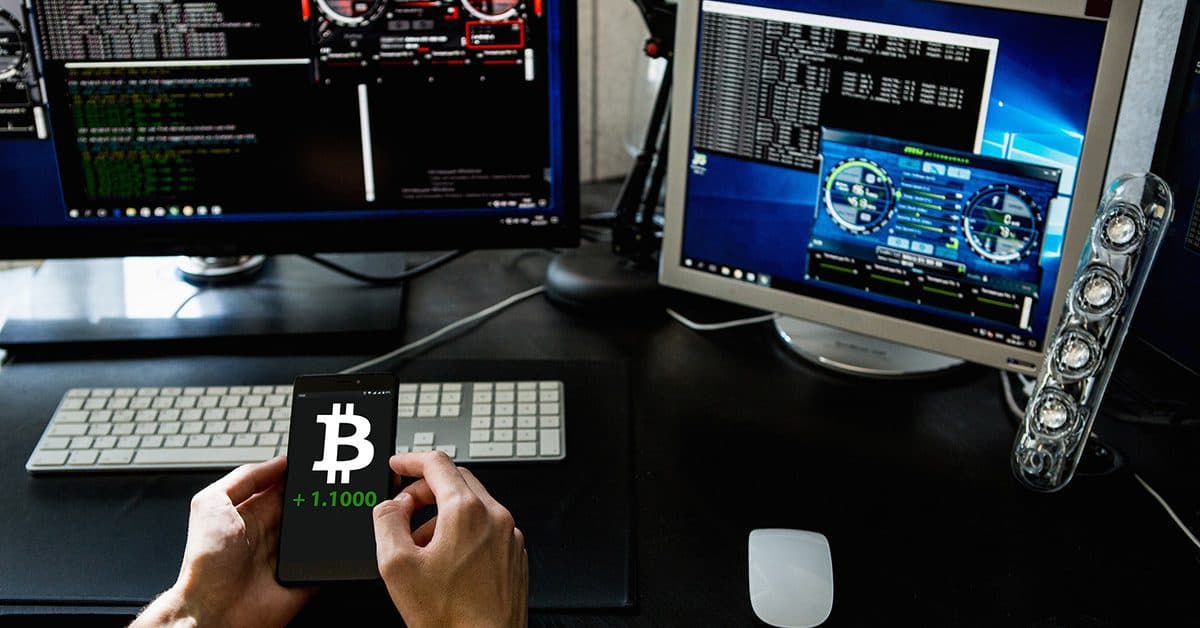Compass Mining to Now Serve At-home Miners
Company launches delivery of Bitmain’s Antminer S19 and MicroBT’s Whatsminer M30S.

Man holding a phone with a bitcoin exchange rate
- While some retail miners prefer a hands-off approach through Compass’ hosting services, demand for do-it-yourself offering is on the rise
- Compass raised $1.7 million in seed funding in March with participation from Galaxy Digital, CoinFund and CoinShares
Compass Mining has launched a service for consumers to purchase bitcoin mining equipment for their home as an alternative to having to pay remote hosting facility fees to mine $BTC.
Founded in 2020, Compass Mining is a bitcoin-first company seeking to support the decentralized growth of hashrate, which is vital for ensuring network security. The company helps customers buy, ship and install mining hardware and arranges for it to be hosted at mining facilities with favorable power rates.
Compass raised $1.7 million in seed funding in March with participation from Galaxy Digital, CoinFund and CoinShares.
The company’s latest service delivers application-specific integrated circuit, or ASIC, mining machines to customers’ doors. Compass offers Bitmain’s Antminer S19 and MicroBT’s Whatsminer M30S, and orders ship within two weeks.
Machines available on Compass’s website range in cost from $8,200 to $10,400. The new offering comes at a time when hashrate has been recovering following a steep drop caused by an abrupt exodus of mining operations from China to the rest of the world, including North America.
 Unit: Hashes per second; Source: BitcoinVisuals
Unit: Hashes per second; Source: BitcoinVisuals
Can retail users compete?
“While industrial mining operations and retail miners primarily use Compass to help them secure space in one of our 23 hosting facilities around the world, we have found that there is significant interest from our customer base to set up operations in their own home,” Compass Mining CEO Whitney Gibbs said in a statement.
Since ASIC mining machines were introduced in 2012, large corporations with hundreds of thousands of machines have dominated the market, the firm noted.
A surge in at-home mining interest occurred in hand with this year’s surge in general demand for cryptocurrency mining products and services from retail clients, a spokesperson told Blockworks, adding that mining profitability is near record levels. That comes despite the fact that ASIC lifecycle is typically just 2-4 years, before they either wear out or require upgrades due to improvements in mining technology.
Compass hosts thousands of machines at its two dozen or so mining farms around the world with power costs that are generally much cheaper than North American residential power costs, the representative added. At-home miners typically pay higher electricity rates than miners hosting through Compass, and profitability calculators are available online for them to model their prospective revenue, costs and profit.
Unlike some other competitors, Compass doesn’t manufacture its own mining hardware. Coinmine, for example, offers a crypto device that can be set up from any iOS or Android device, and can run anywhere with a wifi connection. The machine can mine cryptocurrencies and then store them in a user’s in-app digital wallet.
Are you a UK or EU reader that can’t get enough investor-focused content on digital assets?Join us in London on November 15th and 16th for the Digital Asset Summit (DAS) London. Use code ARTICLE for £75 off your ticket. Buy it now.






